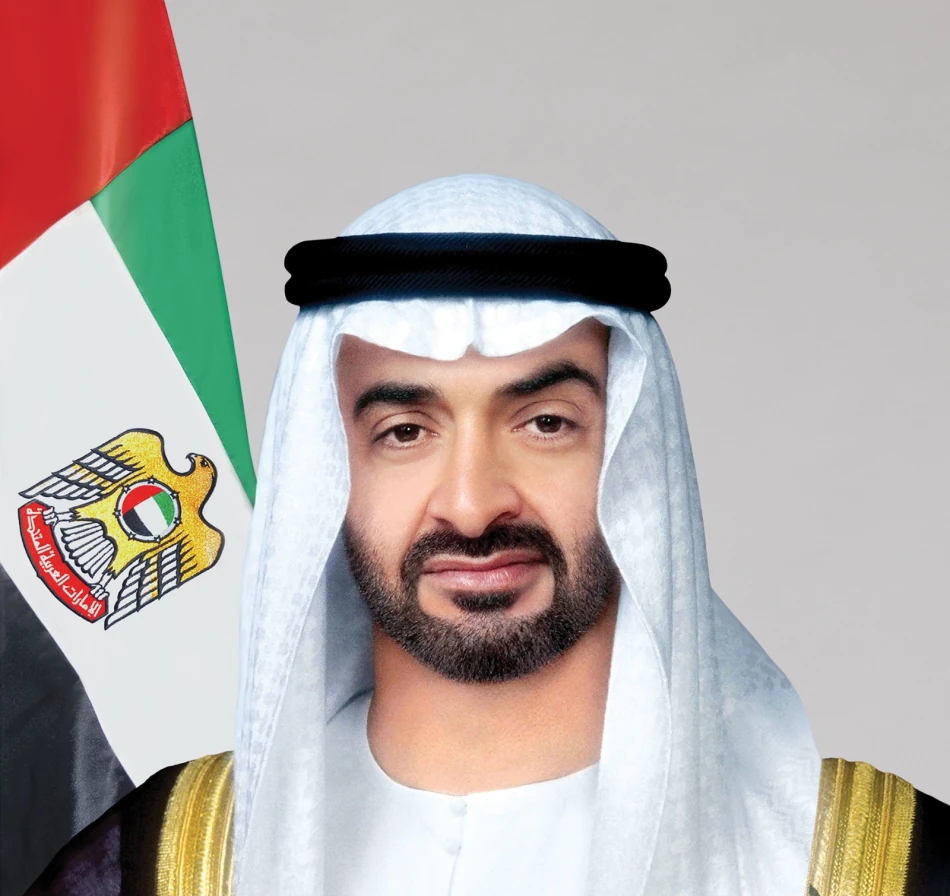
UAE President Restructures Zayed Humanitarian Foundation's Board of Trustees
UAE Consolidates Humanitarian Power Under Single Foundation in Strategic Restructuring
The UAE has reshaped its humanitarian leadership structure with Sheikh Mohamed bin Zayed Al Nahyan issuing Federal Decree No. 116 for 2025, reconstituting the board of trustees for the Zayed Humanitarian Legacy Foundation. This move consolidates oversight of more than a dozen major charitable and environmental organizations under one umbrella, signaling a shift toward centralized coordination of the nation's global humanitarian influence.
New Leadership Structure Reflects Strategic Priorities
Sheikh Dhiyab bin Mohamed bin Zayed Al Nahyan will chair the reconstituted board, leveraging his role as Deputy Chairman of the Presidential Court for Development Affairs and Martyrs' Families. The appointment positions him at the intersection of domestic development and international humanitarian outreach, reflecting the UAE's approach of linking internal stability with global soft power projection.
The eight-member board brings together key figures from strategic planning, community development, and international aid sectors. Notable appointments include Dr. Ahmed Mubarak Al Mazrouei, who heads both the President's Office for Strategic Affairs and the Abu Dhabi Executive Office, and Shamma bint Suhail Al Mazrouei, Minister of Community Development.
Institutional Consolidation Strategy
The foundation, established under Federal Decree No. 126 in 2024, operates with independent legal personality while reporting to the Presidential Court Chairman. This structure mirrors successful models used by Singapore's Temasek Holdings and Norway's sovereign wealth fund, where government-linked entities maintain operational independence within strategic oversight frameworks.
Extensive Portfolio Spans Multiple Sectors
The foundation oversees an impressive array of institutions that collectively represent billions in humanitarian and environmental investments. Key entities include the Zayed bin Sultan Foundation for Charity and Humanitarian Works, the Khalifa bin Zayed Foundation for Humanitarian Works, and the Mohamed bin Zayed Foundation for Humanitarian Impact.
Environmental initiatives feature prominently through the Mohamed bin Zayed International Fund for Species Protection and Nature Enhancement, alongside Clean Rivers Limited and Ikthar Wildlife Development Company. This dual focus on humanitarian aid and environmental conservation aligns with global ESG investment trends and positions the UAE as a leader in sustainable development financing.
Educational and Innovation Components
The portfolio includes several award programs that function as soft power instruments: the Zayed Sustainability Prize, Sheikh Khalifa Educational Award, and the Mohamed bin Zayed Best Teacher Award. These initiatives create networks of influence across developing nations while promoting UAE values and expertise in education and sustainability.
Strategic Implications for Regional Leadership
This consolidation comes as Gulf states increasingly compete for humanitarian leadership roles amid shifting global aid patterns. Saudi Arabia's establishment of the King Salman Humanitarian Aid and Relief Centre and Qatar's expansion of humanitarian diplomacy through the Qatar Fund for Development demonstrate the region's recognition of humanitarian aid as a foreign policy tool.
The UAE's approach differs through its emphasis on institutional sustainability and private sector integration, evidenced by the inclusion of Watan Fund Holding Company within the foundation's portfolio. This model creates revenue streams that can sustain humanitarian activities beyond government budgets, offering greater flexibility during economic downturns.
Market and Investment Perspective
For international development finance institutions and impact investors, the UAE's consolidated approach offers clearer partnership pathways and potentially larger-scale collaboration opportunities. The foundation's structure suggests the UAE is positioning itself as a hub for humanitarian finance, similar to its role in Islamic finance and sustainable investing.
The timing coincides with increased global demand for humanitarian assistance, driven by climate change impacts and regional conflicts. Organizations with streamlined decision-making processes and diverse funding sources are better positioned to respond rapidly to emerging crises, potentially increasing the UAE's influence in international humanitarian coordination bodies.
Most Viewed News

 Sara Khaled
Sara Khaled






